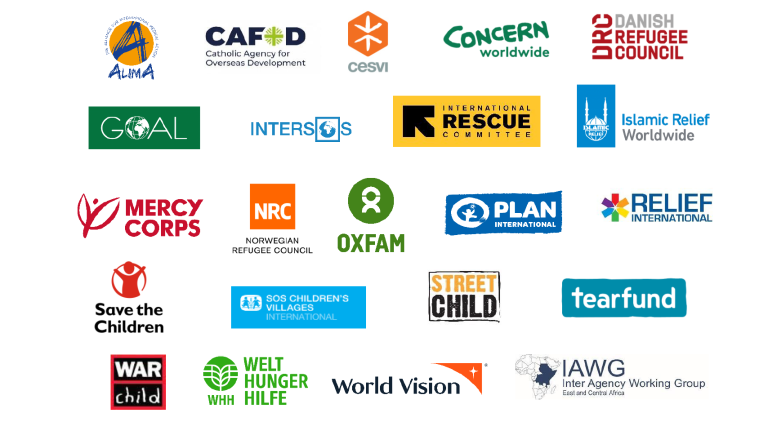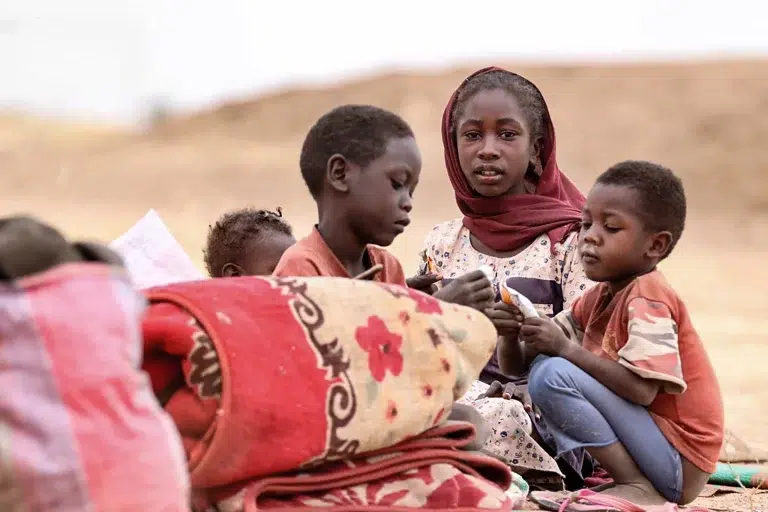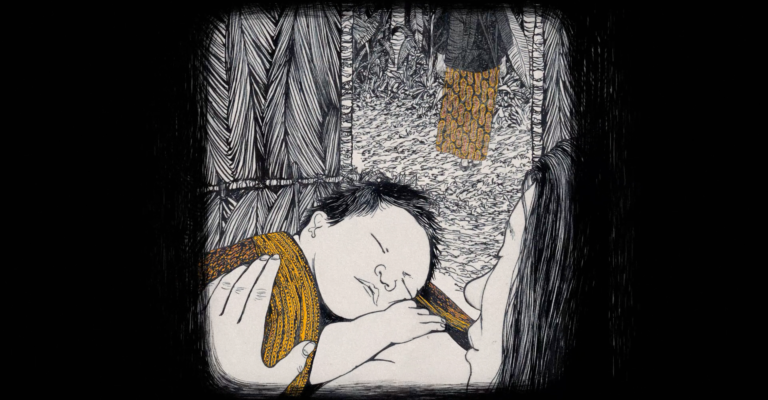Alert and call for mobilization from the INGO Forum on the deteriorating humanitarian situation in the Democratic Republic of Congo
Kinshasa, 22nd June 2023 – The organizations members of the International NGO Forum in the Democratic Republic of Congo (DRC) are raising an alarm over the sharp deterioration in the humanitarian situation they are witnessing in the east of the country. They are also alarmed by the reduction in humanitarian space due to the resurgence of deadly conflict violence and the militarization of the region, which is leading to a worrying worsening of the plight of affected populations.
The INGO Forum in DRC supports the decision taken on June 16th, 2023 by the IASC (Inter-Agency Standing Committee) to activate the “Scale-Up” of humanitarian operations in the DRC, and confirms that its members with activities and a presence among the populations in the provinces concerned have already increased their response, and in the face of still-growing needs are preparing to further increase their commitment.
This activation commits all humanitarian actors to a large-scale mobilization in response to a humanitarian crisis that is worsening considerably, when the capacity to lead, coordinate and deliver assistance and protection does not match the scale, complexity and urgency of the crisis¹.
The INGO Forum stresses that, even measured against the extreme violence and crises that the DRC has
experienced in recent years, the level of the humanitarian crisis currently prevailing in the Democratic
Republic of Congo is extremely high.
The humanitarian crisis in the DRC is deteriorating rapidly and alarmingly. A dramatic illustration of this
situation is the attack on the night of June 12, 2023 on a site for displaced people in Lala. This attack, which resulted in the death of at least 46 people, including 23 children, was unfortunately not an isolated event. Since the beginning of the year, more than 2,750 civilians have been killed in eastern DRC². In many areas, the presence of active non-state armed groups is aggravating the ongoing cycle of violence, triggering massive population displacements and exacerbating an already fragile humanitarian situation. In many cases, these internal displacements lead to tensions between host communities and displaced populations due to lack of access to basic social services. In many communities, people live in constant fear of being trapped by new outbreaks of violence, perpetuating the cycle of fear.
Some 6.3 million people have fled their homes, the highest number of displaced people in Africa. Needs
have reached extremely high levels in North Kivu, South Kivu and Ituri, where 5.5 million people have been displaced since March 2022. Some 25.8 million people will face acute food insecurity in 2023, the highest number of food-insecure people in the world³.
The conflict has also led to a significant increase in grave violations against children, with a rise in the
recruitment of children into armed groups, an upsurge in the abduction, murder and mutilation of
children, as well as sexual violence and negative survival practices including prostitution to gain access to
food.
Despite the efforts of humanitarian actors and international and national NGOs on the ground – including
in areas where access is difficult or dangerous – their response capacity remains insufficient to meet the
needs. Political and media attention to this crisis remains incredibly low, leaving the DRC to emerge as one of the world’s most neglected crises⁴. The INGO Forum therefore calls on the international community to step up its political and diplomatic commitment to finding a solution and putting an end to this perpetual cycle of violence in the DRC.
If the human, technical and financial resources of international NGOs and their partners operating in the
DRC are not significantly increased, there is a great risk that, despite the “scale up” activation, the response will be insufficient to address the multiplicity of crises facing the country.
Consequently, the INGO Forum in the DRC urgently requests that :
- The Congolese authorities and all those whose action and influence can change the situation in
the region, play their part in preventing incidents and take steps to ensure that International
Humanitarian Law and humanitarian principles are respected. - All parties to conflicts preserve humanitarian space and allow free access for humanitarian actors
with a mandate to provide immediate assistance to populations, based on humanitarian
principles, including in hard-to-reach areas. - Donors continue to increase funding to ensure better access to basic social services.
- Donors support and facilitate policies and programs that aim to reduce the drivers of violent
- conflict and the mechanisms that prevent conflicts from breaking out.
- Humanitarian coordination and response actors continue to maintain a presence on the ground,
as close as possible to operations and to ensure a protective framework for civilian populations. - Diplomatic representations in the DRC urges the Congolese government to monitor and respect
bilateral regional agreements in response to the crisis, in order to find solutions that can guarantee
the protection of the civilian population, a de-escalation of the conflict and access to humanitarian
aid for affected populations. - Diplomatic representations in the DRC are stepping up their lobbying towards Congolese
authorities to make them aware of the difficulties INGOs are facing with numerous administrative,
operational and security obstacles.
“The upsurge of violence in the DRC over the last six months is extremely worrying. This ever-increasing
violence targets not only the population, but also the humanitarian and development operations
undertaken on behalf of these same populations. We call on the Congolese authorities to play their part
in preventing incidents and and all those whose action and influence can change the situation in the
region, to take steps to ensure that International Humanitarian Law and humanitarian principles are
respected”, said Luc Lamprière, representative of the INGO Forum in the DRC.
For further information on this communication, please contact Luc Lampriere: representant@forumongirdc.org
The INGO Forum in DRC is an independent body of over 124 international non-governmental organizations (INGOs) including ALIMA (The Alliance for International Medical Action). Forum members cover all the country’s provinces, and work in all humanitarian, development and peace-building sectors.
See the press release on the DRC INGO Forum website
Cover picture ©John Wessels / ALIMA
¹ IASC – Humanitarian System-Wide Scale-Up Activations and Deactivations | IASC
² INSO – Democratic Republic of Congo – Figure referring to direct victims of the conflict
³ Relief Web – Humanitarian situation in the Democratic Republic of Congo
⁴ NRC – The world’s most neglected displacement crises






